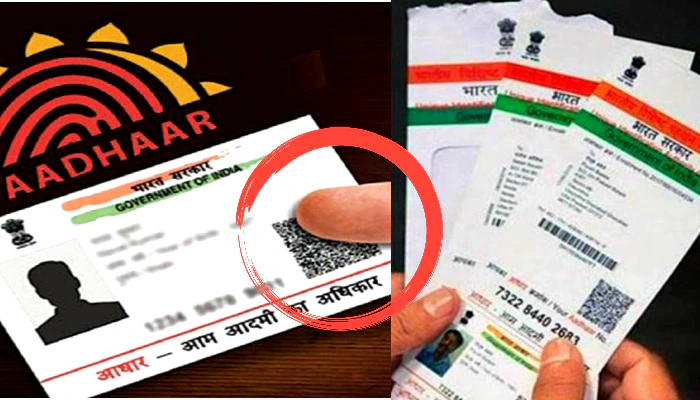
UIDAI Revamps E-Aadhaar: No More Paper Copies, Full Rollout By November 2025
In a move aimed at making Aadhaar services more citizen-friendly and paperless, the Unique Identification Authority of India (UIDAI) is preparing to roll out a major upgrade to the e-Aadhaar system by November 2025. The overhaul will eliminate the need for photocopies of Aadhaar cards and significantly simplify the process of updating personal information.
Speaking to a news organisation, UIDAI CEO Bhuvnesh Kumar said, "You will soon be able to do everything sitting at home other than providing fingerprints and IRIS."
QR code-based digital Aadhaar to replace physical copies:
Central to this transformation is a new QR code-powered e-Aadhaar that allows individuals to share either full or masked versions of their Aadhaar details digitally. This feature is expected to be used across various sectors such as hospitality, travel, and property registration - all with the user's explicit consent.
Over 2,000 machines supporting the new system have already been deployed, with the goal of reaching 1 lakh by the full rollout. Most updates - including address, name, date of birth, and mobile number - will soon be possible online, without requiring visits to Aadhaar enrolment centres for anything except biometric verification.
UIDAI is integrating with several official databases to enable these updates, including:
- Birth and school certificates PAN cards and passports Driving licences Public Distribution System (PDS) MNREGA employment records
The government is also exploring electricity bill databases for smoother address authentication.
Fighting fraud and enhancing data privacy:
The revamped e-Aadhaar aims to strengthen security and reduce identity fraud. UIDAI is working with state governments to institutionalize Aadhaar verification during property registrations, addressing impersonation and fake ownership issues. Sub-registrars and hotels are also evaluating the use of QR code-based Aadhaar sharing for secure, consent-based identification.
Biometric updates for children in focus:
Another major push is aimed at biometric updates for children. UIDAI estimates that around 8 crore children aged 5–7 and 10 crore adolescents aged 15–17 need to update their biometrics. Collaborating with CBSE and other education boards, UIDAI will roll out school-based awareness and update campaigns to ensure compliance with new standards.
Aadhaar use cases to expand across sectors:
UIDAI is also in discussions with security agencies, hospitality providers, and other government departments to broaden Aadhaar's applicability - even in areas where it is currently not mandatory. The goal is to make Aadhaar a central pillar of secure, digital identity services in India.
Legal Disclaimer:
MENAFN provides the
information “as is” without warranty of any kind. We do not accept
any responsibility or liability for the accuracy, content, images,
videos, licenses, completeness, legality, or reliability of the information
contained in this article. If you have any complaints or copyright
issues related to this article, kindly contact the provider above.

















Comments
No comment